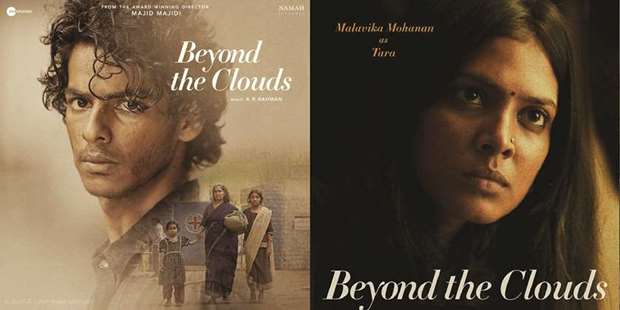The Iranian auteur, Majid Majidi, has made remarkable cinema, and has been a master with children. His first film, Children of Heaven, in 1998 was the first Iranian movie to compete for the Foreign Language Oscar. It did not win, another captivating work, Roberto Benigni’s World War II saga, Life is Beautiful, also focussing on a child and his father’s efforts to keep the little one away from the Nazi horrors, clinching the honours.
Children of Heaven was a touching story of a brother and sister, and how they take care of each other when the boy’s shoes are stolen, and Majidi would often return in his cinema to young adults — teens and even those younger — to tell us about their travails. Much like Satyajit Ray, who could handle children with great understanding and get some exceptional performances out of them, Majidi has had this rare ability to create magic with kids. I have seen this in movies like The Colour of Paradise and Baran, and I was not surprised to find him returning to children and young adults in his first ever Hindi film, Beyond the Clouds, which opened in India last week.
Majidi retraces his steps to take us back, all over again, to a story of a sister and her brother. They are probably in their early 20s, and having lost their parents early on, the girl, older of the two, takes care of her baby brother — till his criminals ways of making a living by operating as a drug courier estrange the two.
Many years later they run into each other and work towards a reconciliation. However, life is not expected to give you what you want (Irrfan Khan made this famous statement recently after having discovered that he was afflicted with a rare disease.), and the sister, Tara (Malavika Mohanan), injures a man (Goutam Ghose) when he is trying to rape her. When she is jailed, her brother, Amir (Ishaan Khatter), begins to take care of her in a reversal of roles.
Amir tends to the wounded man in hospital, hoping that he would recover — so that Tara would escape with a lighter prison sentence. And when the brother finds himself saddled with the rapist’s Tamil-speaking family of a mother and her two grand-daughters, Amir is in a dilemma, but after fighting the demons in his head (including a strong temptation to sell one of the girls to a prostitution mafia), he is overwhelmed by sympathy, and he forges a strong bond with the family, including the little grand-daughter.
Majidi is at his very best in these scenes where children appear on the screen. Such beauty can also be seen when Tara befriends a little boy whose mother dies in jail. There are touching moments between Tara and the boy, between a girl, who finds herself sad and suffocating in a state that she should have never found herself, and the kid, bewildered to be orphaned. Majidi is just superb when he is directing children. But, unfortunately, beyond these, he is utterly disappointing.
Beyond the Clouds turns out to be no better than a Bollywood mishmash of hysterics, runaway tempers, dramatics which verge on the silly and a script that goes haywire running away from Majidi’s strength of subtlety and sobriety. This movie stands glaringly in contrast with the helmer’s earlier works.
What I found even more disturbing was his tendency to go to town with Mumbai’s underbelly of filth and crime, and I am tempted to describe Beyond the Clouds as Slumdog Millionaire 2 — a film which Danny Boyle made, and which the Greek legend, Theo Angelopoulos, described as “a celebration of Indian poverty”. He told me in Mumbai many years ago, that he found the movie so awful that he walked out of the theatre in 15 minutes.
But then Slumdog Millionaire went on to clinch Oscars, and I could then see that the Western world was happy slotting India into a clichéd pit of slums.
Back to Majidi, I could see clearly that he had slipped with Beyond the Clouds. One important reason could have been that he had dared to slip out of his comfort zone, his homeland. I can cite two examples of how two great directors went beyond their language and familiar terrain only to falter. If Satyajit Ray made one bad film, it was Shatranj Ke Khilari, and all because, I think, he was unfamiliar with Hindi and uncomfortable outside his home.
It was the same case with Asghar Farhadi, another marvellous Iranian director, whose A Separation (which walked away with an Academy Award) took my breath away with a plot that centred on a marital divorce and how a little girl suffered as a consequence. However, when Farhadi travelled to Paris to shoot The Past (also about discord in marriage), it was not one of his best works. Despite a notable cast of Berenice Bejo (The Artist) and Tahir Rahim (A Prophet), The Past appeared listless and could not grip my attention.
Language and a certain familiarity are important for a seamless moviemaking process, and I have been writing — for a long time in my columns — about the importance of these. Even someone as sparkling as Irrfan Khan seemed disappointing when he acted in a Bengali film, Doob: No Bed of Roses. And he agreed when we spoke last at the Dubai International Film Festival last December. “I agree with what you said about the Bengali work. I was not comfortable playing that part. Language, if you do not understand it, can be an impediment, he averred.
* Author, commentator and movie
critic Gautaman Bhaskaran has been writing on Indian and world cinema for
close to four decades, and may be e-mailed at [email protected]

DISAPPOINTING: Beyond the Clouds is no better than a Bollywood mishmash of hysterics, runaway tempers and dramatics which verge on the silly, according to the author.
